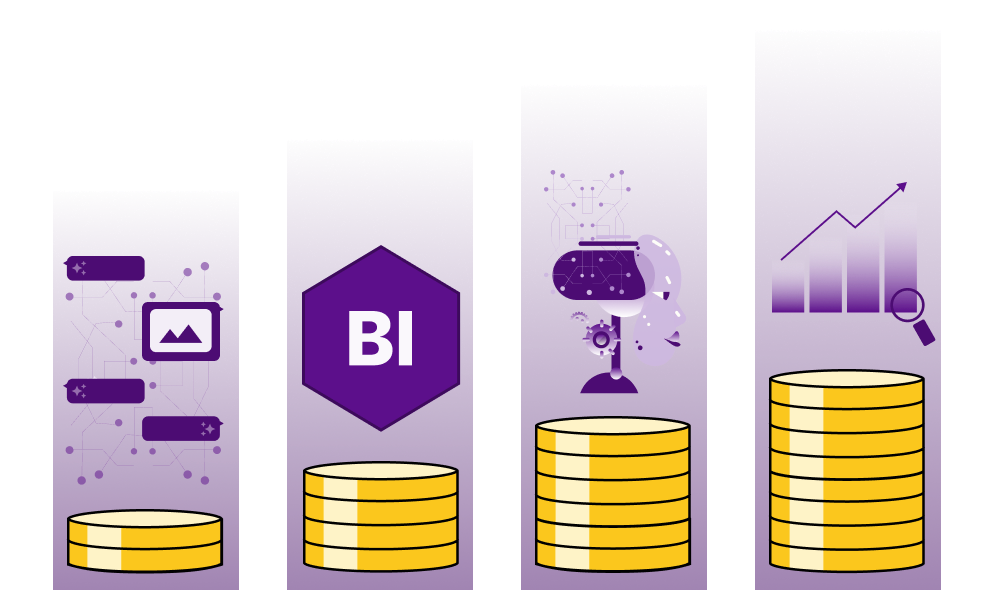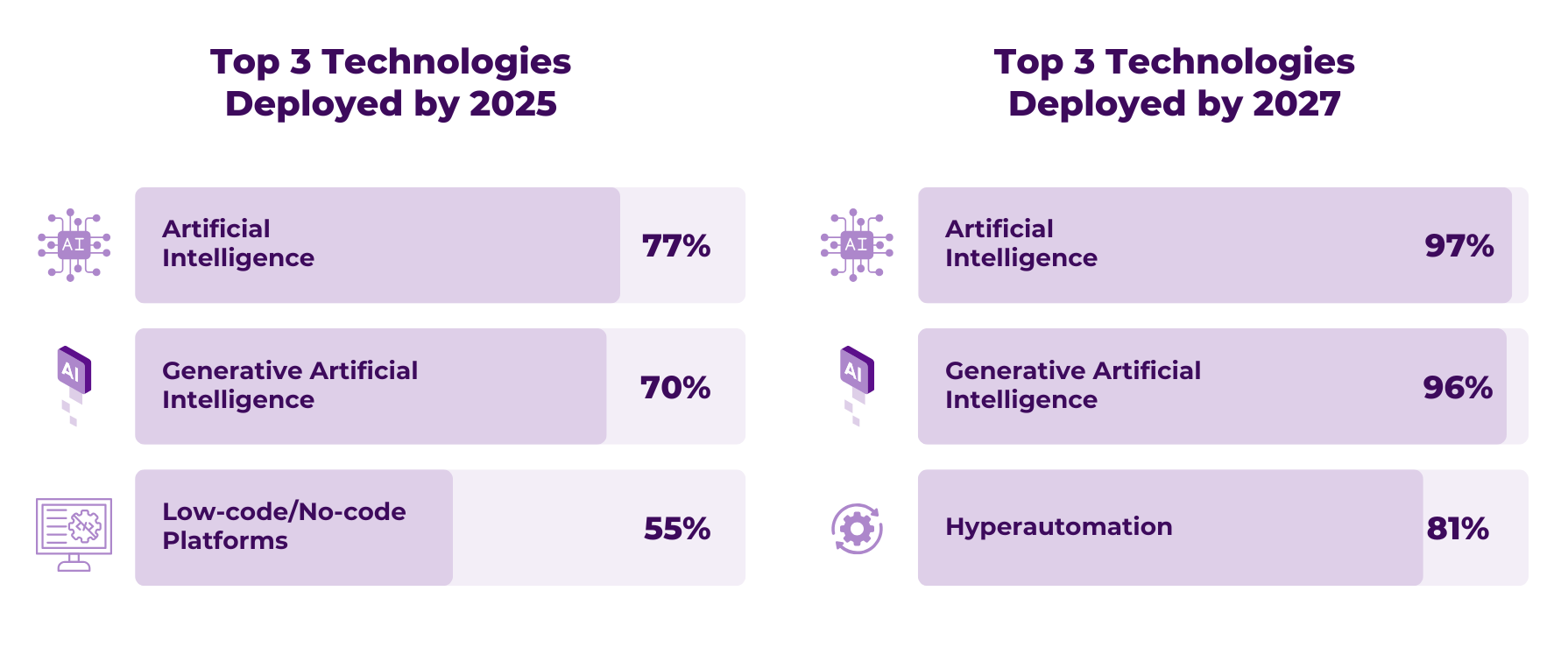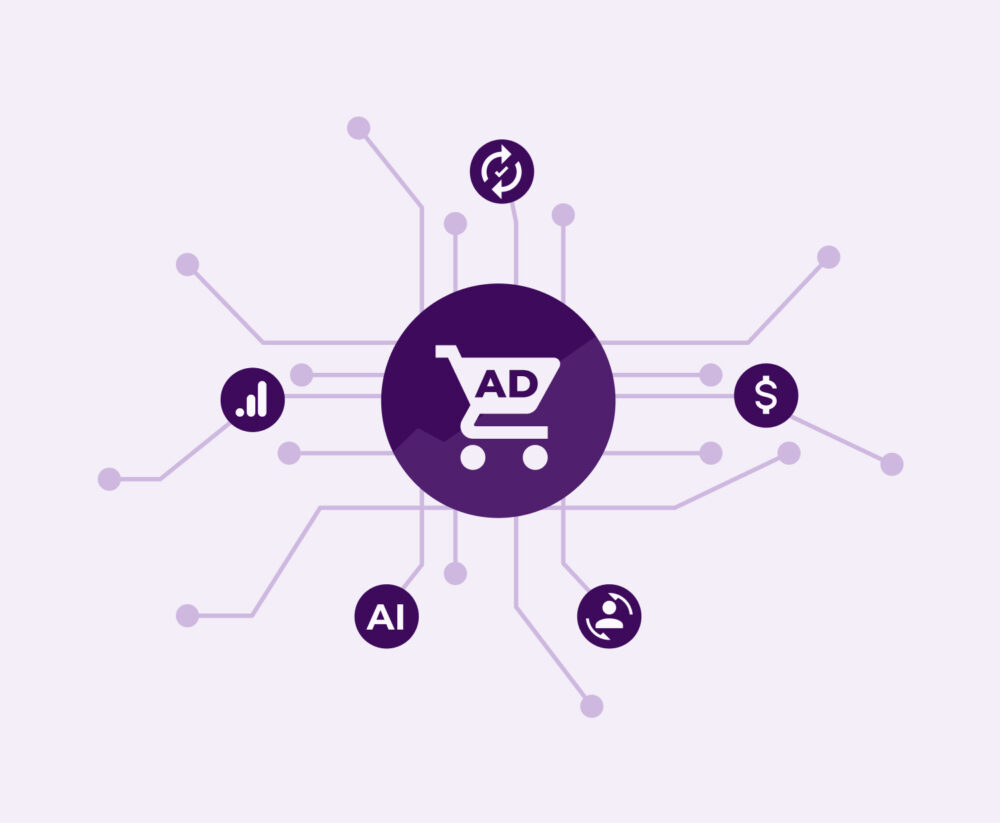Retail’s main investments and technology objectives in 2025
The retail sector is undergoing a rapid transformation driven by the advancement of new technologies. Looking ahead to 2025, businesses are embracing innovative solutions to improve their operational efficiency and deliver more personalized experiences to their customers. This technological evolution is key for organizations to remain competitive in an increasingly digitized and consumer-centric environment.
In this article, we will analyze some of the main areas of technology investment that retail is focusing on and the emerging trends that will shape the future of the sector.
Expected Changes in Retail Tech Investments for 2025
As retail embraces digital transformation, many companies are adjusting their budgets to focus on key technologies. These technologies will allow them to not only optimize processes, but also offer better service and strengthen decision-making.
Several technology areas are expected to see significant increases in investment due to their potential to generate value and operational efficiency:
- Artificial Intelligence (AI): AI is positioning itself as one of the most valuable tools in retail, as it enables automation of tasks, enhanced personalization and optimized data management. This technology is being rapidly adopted to improve decision-making, manage inventory and deliver more personalized customer experiences.
- Generative AI: Within Artificial Intelligence, Generative AI is gaining ground. This technology is capable of generating original content, such as text, images or creative products, based on data patterns. In retail, it is being used to create product designs, improve customer service through advanced chatbots and generate unique marketing experiences.
- Business Intelligence (BI) and Data Analytics: The ability to analyze large volumes of data to extract valuable information has become critical. BI tools allow brands, manufacturers and retailers to better understand consumer behavior, predict buying trends and optimize their marketing and operational strategies.

Overall, the increase in company technology budgets is aligned with the growing importance of technology as a strategic growth driver. In addition, many organizations are projecting an increase of up to 7% in their revenue driven by the efficient use of these tools.
Priority Investment Areas
As retail moves towards 2025, certain technology areas have become top priorities for their CIOs (Chief Information Officers), given their direct impact on security, operational efficiency and the customer experience.
Technologies with the Highest Increase in Investment for 2025
Some of the technologies that retail leaders are prioritizing their investments in are:
- Cybersecurity and Information Security: With the increase in cyber threats, protecting customer data and the integrity of systems has become a central concern. Information security is now a fundamental pillar for companies seeking to protect themselves from attacks and ensure customer trust.
- Artificial Intelligence: AI not only helps improve operational efficiency, but it also allows for personalized offers and enhanced customer experience. With the growing amount of data available, businesses need advanced technologies that allow them to analyze this data and extract valuable information.
- Cloud Platforms: The migration to the cloud has become a widespread trend due to its ability to improve flexibility, scalability and operational efficiency. Cloud platforms offer businesses the ability to store and process data more efficiently. This is fundamental for the growth of online commerce.
Technologies with Reduced Investment
While some technology areas are seeing growth in their investments, others are experiencing a reduction, reflecting changes in the sector’s priorities:
- Legacy Infrastructure and Data Centers: With the growing adoption of cloud solutions, businesses are reducing their dependence on on-premise infrastructure and traditional technologies. This shift reflects a move towards more flexible and cost-effective systems.
- Augmented and Virtual Reality: While these technologies have captured interest in several sectors, their adoption in retail has been slower. Many businesses are reevaluating the ROI they are getting from these technologies, reducing their presence in investment plans.
- Next-generation Technology: Emerging technologies, such as quantum computing, are not yet fully mature for the retail sector, leading to a reduction in short-term investments. However, it is likely that in the long term, these areas will experience a resurgence as they mature and become more widely adopted.
CIOs’ Preferences in Vendor Selection
Selecting technology vendors has become a strategic task for retail leaders, as technological solutions are a key differentiator. Depending on the type of technology, priorities may vary.
Vendor Selection for Basic Technologies
For technologies considered basic or non-differential, retail leaders typically prioritize factors such as:
- Total Cost of Ownership: Reducing costs remains a priority, especially when it comes to technological solutions that do not offer a direct competitive advantage. CIOs seek to get the most value for their investment, ensuring that the expenses associated with owning and operating the technology are as low as possible.
- Product Roadmap: The ability of a technological solution to evolve over time is crucial. Companies want to make sure that the technology products they choose today can adapt to their needs of tomorrow.
- Customer Experience: The support and customer service provided by the vendor are fundamental for many companies. Working with partners who offer a positive customer experience can make a difference in the implementation and use of technology solutions.
Vendor Selection for Competitive Technologies
When it comes to differential technologies (those that can offer a competitive advantage) information technology leaders focus more on strategic aspects such as:
- Innovation: The ability of a vendor to innovate and offer cutting-edge technology solutions is key to remaining competitive in the market. Retail managers seek to partner with companies that are at the forefront of technology trends. If, in addition to being innovative, the vendor’s proposal is cost-effective in the long term, companies will choose it without hesitation.
- Product Development: CIOs need to be sure that the technologies they adopt will be continuously developed. The product roadmap is an indicator of the long-term viability of a technology solution.
The Future of Technology Implementation
Looking ahead to 2025 and beyond, retail is in a process of accelerated transformation. This process will be driven by the adoption of new technologies that will enable companies to be more agile, efficient and competitive.
One of the most interesting findings of the Gartner study “2025 Gartner CIO and Technology Executive Survey” is the prediction it makes about the state of adoption of various technologies in 2025 and 2027:

Technologies Deployed in 2025
By 2025, most brands, manufacturers and retailers will have implemented several key technologies, such as:
- Artificial Intelligence: It is expected that 77% of those surveyed by Gartner will have implemented AI solutions in their operations by 2025.
- Generative AI: 70% will have deployed generative AI to improve processes such as content creation, product design and automated customer service.
- Low-code/No-code Platforms: 55% of respondents will have implemented these types of platforms, which allow employees without technical knowledge to develop applications, accelerating innovation and reducing dependence on traditional IT teams.
Technologies Deployed in 2027
Looking beyond 2025, by 2027, the technological landscape is expected to be even more advanced and ambitious:
- AI Expansion: Artificial intelligence, in all its forms, will be fully integrated into most retail operations (reaching adoption rates of up to 97%), optimizing all aspects of the business, from logistics to customer service.
- Hyperautomation: 81% of respondents will have deployed hyperautomation technologies, which allow for the automation of complex processes through AI and advanced data analysis.
Conclusion
The technological transformation in the retail sector is imminent, and 2025 will be a crucial year for consolidating this change. Companies that invest in key technologies such as artificial intelligence, cybersecurity and cloud platforms will be better positioned to compete in an increasingly digitalized environment.
The key to success in this process will be not only to invest in the right technologies, but also to choose forward-thinking technology partners who are capable of innovating and evolving alongside the needs of the market. Companies that make smart strategic decisions regarding technology investments and vendor selection will survive the digital revolution. In addition, they will also thrive, offering their customers personalized experiences and significantly improving their operational results.
The future of retail is undoubtedly technological, and those who lead this transformation will be the ones who benefit the most in terms of growth, efficiency and customer satisfaction.



